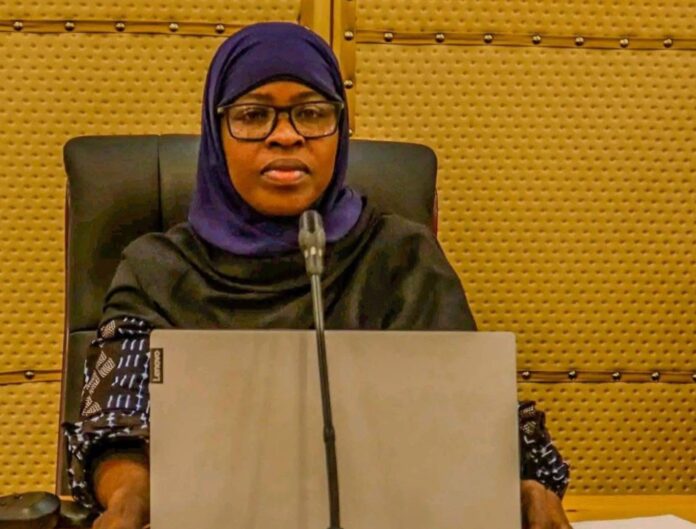Written by: Mama A. Touray
The Minister of Basic and Secondary Education, Hon. Habibatou Drammeh, has attributed the ongoing delay in the supply of textbooks to senior secondary schools to a contract signed in 2023 with the Gambia Printing and Publishing Corporation (GPPC).
Speaking during her oral submission before the National Assembly, Drammeh explained that the contract, which spans two years, has created unforeseen bottlenecks in the production and distribution of learning materials.
“The delay started when we entered into contract with GPPC, and that was from 2023 to date. The contract is a two-year contract, so for the past two years we have had challenges getting the books to the senior secondary schools,” she told lawmakers.
According to Drammeh, the GPPC struggled to meet demands as it became the sole supplier of textbooks—a role previously shared among multiple vendors.
“Previously, we could get the supply from different suppliers. Because we had decentralised it in the past, it was much easier. Once we depended on GPPC alone, it took more time to complete the entire production within the time frame given to them,” she said.
She noted that the 2023/2024 academic year marked the start of the contract, which was signed in collaboration with the Ministry of Finance to print senior secondary school textbooks authored by Gambians.
“This contract ends in 2025, and we are currently in its second year. Production of textbooks is underway, and we expect the books to be available and distribution to commence by September or October 2025,” she added.
In response to the persistent delays, Drammeh revealed that the Ministry commissioned an audit of the contract in April 2025 to better understand the challenges.
“The audit exercise has been completed, and as a sector, we are fully committed to implement its recommendations to ensure timely textbook production and prevent future delays—especially at the senior secondary level,” she said.
Drammeh further explained that since 2014, senior secondary school principals had been procuring textbooks directly using the School Improvement Grant (SIG), a system which reportedly functioned without delays.
“In the past, SIG used to be paid to schools to procure books through the principals, and during that period we did not face challenges of delays in textbook production,” she stated.
When asked whether students are charged for textbooks purchased using the SIG, Drammeh clarified:
“Based on the education policy, education—at both the basic and secondary levels—is free in The Gambia, including all teaching and learning materials that we extend to students within public schools.”
On the impact of the delay on learning outcomes, the Minister acknowledged the problem and its implications.
“Teaching and learning materials are very important for the child, especially at senior secondary level, so it’s equally a concern of the Ministry.”
She added that some schools had reserves of textbooks which were redistributed to support students while awaiting new supplies.
“It’s a concern of the Ministry. That is why we are working hand in glove with the publisher to expedite the remaining processes and make the materials available to schools as soon as possible,” Drammeh assured.




